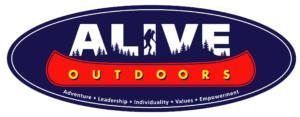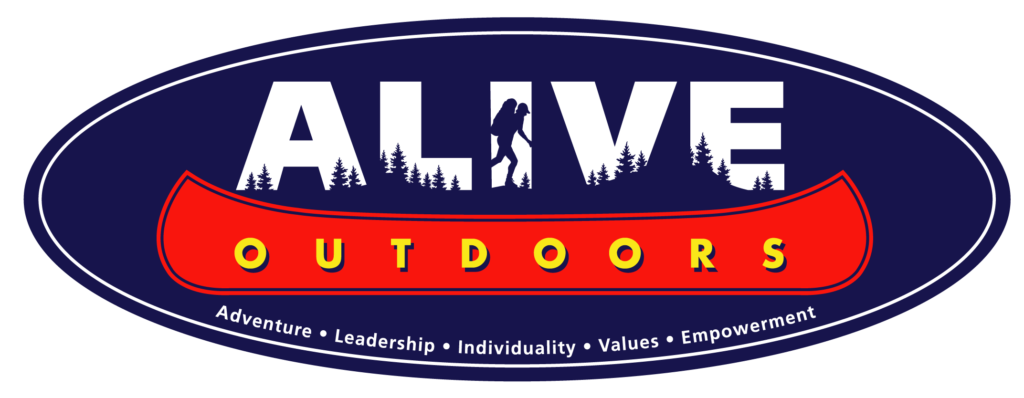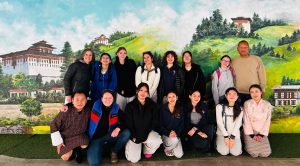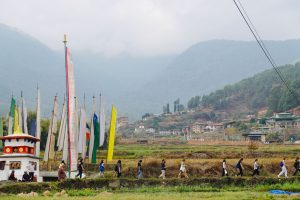Embracing Vulnerability: The Most Valuable Character Strength in International Service Learning.
- Posted on
- By Sam Dear
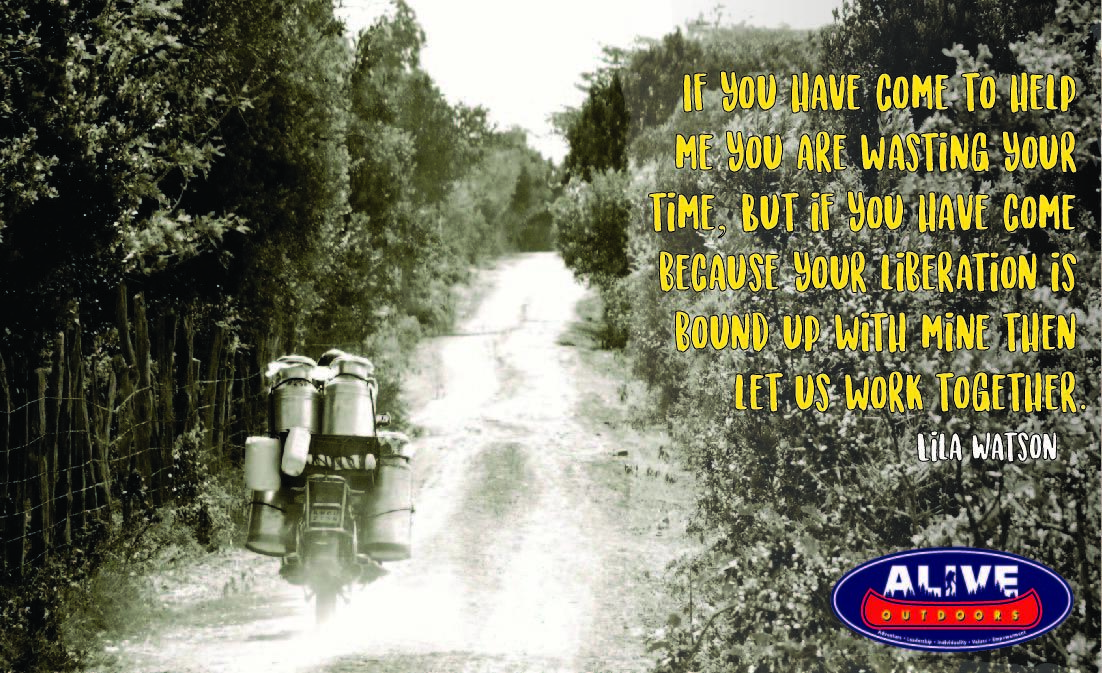
How do we value an educational outcome of vulnerability? Designing educational experiences that expose students (and teachers) to opportunities for feeling authentic, deep, self-reflection based on challenging personal notions of self, other and society is risky, time consuming and when done correctly – perfectly inspiring.
This summer, many thousands of students will travel overseas to volunteer, learn and hopefully grow through participation in some form of international volunteering or service-based project. Criticism surrounding these programs abound. Being critically observant is a key part of filtering through the myriad program models and international projects available. When considering what program might be ‘best’ or most effective it is important to ask a few key questions. The questions that I regularly ask teachers, principals and program providers often include:
- Are the programs you participate in exploitive in nature;
- Why are students compelled to participate, are they doing it to simply build their resumes;
- Are students participating for the ‘feel good mentality’;
- Are the service or volunteer projects actually doing anything long term and meaningful, and how do you know?
Significant research, writing and evaluation has been conducted on the value for participants, but less has been conclusive regarding the value and presence to those in the host community, especially from a long-term program model perspective. It is important to remember that volunteering and service programs in international contexts are ‘Big Business’ and the underlying assumptions of volunteering to help, learn and give are often overshadowed by the needs of organizations to be efficient, cost-effective and marketable. For an aspiring 16-year-old looking to help and partake in the adventure of international service they may encounter many more questions and ambiguity than answers and clarity. There is of course a way forward.
Fighting the ‘hero mentality’ or ‘participating to change the world’ are mantras guiding the forward thinking organizations battling to positively help students grow in deep and meaningful ways. So why does this occupy our thinking and daily practices working with schools, communities and doing business? For me, it all started in Haiti during a service trip in 2006. I was motivated to participate in the program because I wanted to experience firsthand the stories and pictures of helping in an international context. I thought the experience would help me grow and see the world differently. Participating also offered me the opportunity to travel with a purpose – rather than the feeling I was more accustomed to as a tourist. I felt empowered, had intention and a clear goal of why I wanted to help in Haiti.
During that 2006 trip, I remember sitting in the back of a pickup truck returning from the worksite one day. As I looked up the road, I noticed a local Haitian woman walking with a large basket. The basket, full of grain, was supported on her hip and seemed like part of her body as she walked. I was immediately drawn to her and had the impression from the way she walked that she was strong, proud, and determined. When the truck passed the woman, she stopped for a moment and looked up at me. I looked into her eyes, felt a moment of connection – beaming with the notion that I was in Haiti helping, and waved to acknowledge our interaction. She returned a very clear gesture that I will remember for a very long time. She proudly and purposefully raised the middle finger of her right hand in response.
This trip to Haiti ultimately blurred my sense of purpose and forced me to critically reflect on the notion of the word help. I felt vulnerable with my initial intentions and motivations. The conflict began to grow between myself, the service I was doing, and the organizational mission. My worldview shifted, and that was the greatest gift that I took from my early experience with international service-learning.
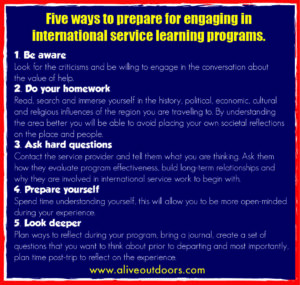
To move forward we must accept and be comfortable with the idea of vulnerability. We can start with building the strength to say “I don’t know” or “I was wrong.” Feeling empowered with the courage to engage in difficult authentic conversations rather than stepping on the eggshells built by the culture of political correctness throws open the doors to let vulnerability into your experience in service-learning. One quote that has always helped guide me over the last decade on the path to questioning the notions of help is from Lila Watson. Lila stated, “If you have come here to help me you are wasting your time. But if you have come because your liberation is bound up in mine then let us work together”.
ALIVE Outdoors facilitates international experiences and workshops for students, teachers and businesses. For more information visit our Global Experiential Education and Deepening International Service Learning pages
You can read more about Sam’s work on international service learning in a recently published book chapter (Many Meanings: Moving Reciprocity to Interdependence in International Service Learning; Dear & Howard) which can be found in Larsen’s edited book International Service Learning: Engaging Host Communities published by Routledge (2015).
